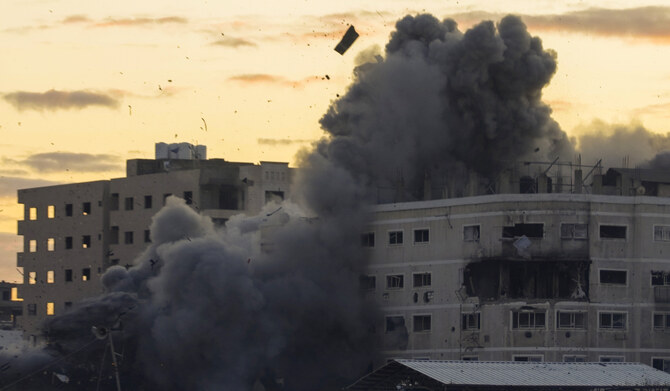BANGKOK: Thailand has said it is “disappointed” by the return to hostilities in Gaza and called for the release of hostages, including a Thai national.
Israel on Tuesday began a fresh assault on the war-battered enclave, shattering the relative calm since a Jan. 19 ceasefire.
The strikes, by far the deadliest since the truce took effect in January, have killed more than 500 people, according to the Health Ministry in Gaza.
At least 130 Palestinians were killed and 263 wounded in the past 48 hours of Israel’s offensive on Gaza, the ministry said on Saturday.
“Thailand is profoundly concerned about and disappointed at the return to hostilities in the Gaza Strip,” said a Thai Foreign Ministry statement.
The Southeast Asian nation urged “all sides to exercise utmost restraint, cease the hostilities, and resume negotiations to implement the ceasefire and hostage agreement.”
It called for the release of remaining hostages in Gaza — including one Thai — and the repatriation of the bodies of two Thai nationals.
When Hamas attacked Israel on Oct. 7, 2023, 31 Thais were abducted, with 23 released by the end of that year and two confirmed dead in May.
Five more abducted Thais returned home in February following their release as part of the January ceasefire, with one Thai national still believed to be alive in Gaza. Israel has said it will pound the Palestinian territory until Hamas releases the remaining hostages held there, despite many inside Israel believing that this strategy will only endanger the captives’ lives.
Ghassan Al-Khatib, a Palestinian political analyst and former Palestinian Authority minister, believes Hamas will only release hostages if it is given guarantees that Israel will uphold the terms of the stalled January ceasefire.
“If the hostages are released under the pressure of the Israeli attacks, then Hamas will be (left) with no guarantees,” he said.
“Hamas will not trust any word from Israel, but the guarantees should come from third parties” such as mediators Egypt, the US or Qatar, Al-Khatib added.
The governments of Germany, France and Britain called for an immediate return to a ceasefire in Gaza in a joint statement that also called on Israel to restore humanitarian access.
“We call on Israel to restore humanitarian access, including water and electricity, and ensure access to medical care and temporary medical evacuations in accordance with international humanitarian law,” the foreign ministers of the three countries, known as the E3, said in a statement.
The ministers said they were “appalled by the civilian casualties,” and also called on Palestinian Hamas militants to release Israeli hostages.
They said the conflict between Israel and the Palestinians could not be resolved through military means, and that a long-lasting ceasefire was the only credible pathway to peace.
The ministers added that they were “deeply shocked” by the incident that affected the UN Office for Project Services, UNOPS, building in Gaza, and called for an investigation into the incident.




























